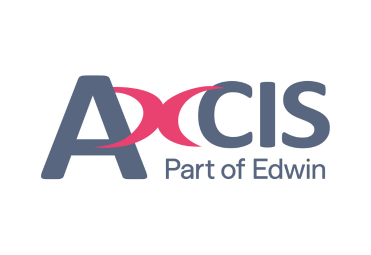ADHD Awareness Month

October is recognised as ADHD Awareness Month, a crucial time to shed light on Attention-Deficit/Hyperactivity Disorder (ADHD) and provide support and understanding for those who live with it. ADHD is a neurodevelopmental disorder that affects both children and adults worldwide. In this blog post, we will delve deeper into what ADHD is, discuss ways to support individuals with ADHD, highlight the importance of raising awareness, and provide resources for those seeking more information.
What is ADHD?
ADHD is a complex condition that impacts a person's ability to focus, control impulses, and exhibit hyperactive behaviour. It is essential to note that ADHD is not simply a result of laziness or a lack of discipline. It is a legitimate medical condition that affects an individual's executive functioning skills. ADHD can manifest in three subtypes: predominantly inattentive, predominantly hyperactive-impulsive, or a combination of the two.
Individuals with ADHD may find it challenging to stay focused, follow instructions, and complete tasks. They may struggle with time management, organization, and exhibit impulsive behaviours. ADHD can have a significant impact on academic, professional, and personal aspects of a person's life. However, with the right support and understanding, individuals with ADHD can thrive.
Supporting People with ADHD
Support and empathy play an integral role in helping individuals with ADHD navigate their daily lives. Here are a few ways we can provide assistance:
- Education and Knowledge
Educating oneself about ADHD is crucial in understanding the challenges and strengths associated with the condition. By learning about the different subtypes, symptoms, and how ADHD can impact various aspects of life, we can develop a better understanding and provide appropriate support.
- Open Communication and Empathy
Maintaining open lines of communication is essential when supporting individuals with ADHD. Actively listening, showing empathy, and understanding their experiences can create a safe space for them to express their challenges, concerns, and achievements. Being non-judgmental and patient goes a long way in building trust and fostering a supportive environment.
- Encouragement and Positive Reinforcement
Recognizing and highlighting the strengths and talents of individuals with ADHD can significantly boost their confidence and self-esteem. Encouraging their efforts, acknowledging their accomplishments, and using positive reinforcement techniques can help them overcome obstacles and achieve their goals.
- Collaborative Strategies
Collaborating on strategies and tools that can aid in managing ADHD symptoms is essential. This can include the use of organisational tools, implementing routines, setting realistic goals, and breaking tasks into smaller, manageable steps. Working together with the individual to develop coping strategies tailored to their specific needs can make a significant difference in their daily lives.
- Seeking Professional Help
It is important to recognise that ADHD is a medical condition that often requires professional intervention. Consulting with healthcare professionals, such as psychiatrists or psychologists, can provide individuals with the necessary support, including medication management, counselling, and individualised treatment plans.


Raising ADHD Awareness
Raising awareness about ADHD is crucial for reducing the stigma and misconceptions surrounding the condition. By increasing understanding and empathy, we can foster inclusion and support for individuals diagnosed with ADHD. Here are a few ways to raise awareness:
- Spread Knowledge Through Social Media
Utilise social media platforms to share informative content, personal stories, and helpful resources about ADHD. By reaching a broader audience, we can contribute to a more informed society that understands the challenges faced by individuals with ADHD.
- Organize Events and Workshops
Coordinate events or workshops within your school or workplace that focus on ADHD education, strategies, and support. Engaging in open discussions and sharing experiences can significantly contribute to raising awareness and fostering a supportive network.
- Collaborate with Local Organisations
Partner with local organisations that specialise in ADHD or neurodiversity. Collaborative efforts can help with the pooling of resources and expertise to better support individuals with ADHD in your community.
ADHD Resources
For individuals seeking more information, education, and support, here are a few recommended resources:
ADHD Awareness Month (https://www.adhdawarenessmonth.org/): This website offers a wealth of information on ADHD, including resources for parents, educators, and individuals with ADHD themselves.
ADHD UK (https://adhduk.co.uk/): This website provides specific advice and support for people in the UK.
Or if you want to further develop your knowledge, Axcis offer free ADHD and neurodiversity training to all registered candidates. To find out more, visit our CPD Training & Career Development page on our website, or get in touch with your local office or our Candidate Training team.
ADHD Awareness Month provides an opportunity to not only understand the challenges faced by individuals with ADHD but also to promote a more supportive and inclusive society. By educating ourselves, providing support, and raising awareness, we can contribute to the well-being and success of individuals with ADHD in our communities. Let us come together to celebrate neurodiversity and create a world where those with ADHD can thrive without stigma or barriers.
